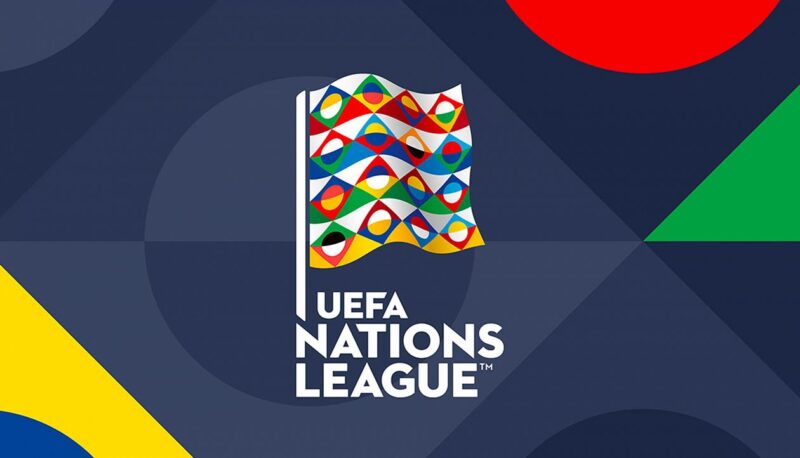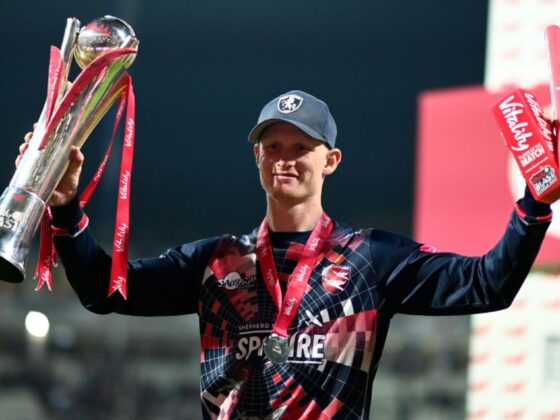England’s 3-2 victory over Italy in the UEFA Nations League has been hailed as a ‘defining moment’ for English football. The result has helped heal the national sporting psyche after years of underachievement and embarrassment and is seen as a crucial step towards redemption for the nation.
England v Italy was a match that was full of drama and excitement. England missed all three penalty kicks in the shootout, but their performance was still inspiring.
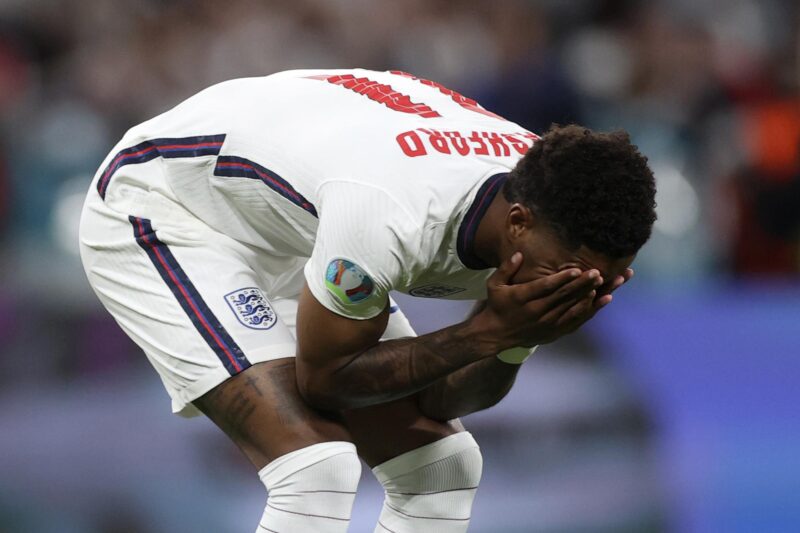
| The 11th of July is a Sunday. 20:00 BST (British Summer Time) London’s Wembley Stadium is the venue. Live TV, Radio 5 Live, iPlayer, and the Sport website and app will all be covered. |
Despite all of England’s sports achievements over the last two decades, the men’s football team remains the one that most people associate with the country’s sporting identity.
England has had remarkable and long-awaited World Cup victories in rugby union and cricket over the last two decades, and the nation has, of course, played a significant role in Britain’s rise as an Olympic and Paralympic powerhouse.
The football squad, on the other hand, has been steadfastly unable to follow suit until lately. A lone wolf.
England became a tragic emblem of sports underachievement after reaching the semi-finals of both the 1990 World Cup and Euro ’96. This era of failure was made much more distressing for many supporters since it coincided with the Premier League’s development and success. With the inflow of foreign managers and players, many speculated that it might be partially to blame.
For years, every big tournament defeat appeared to herald management resignings, FA investigations, and heartfelt sorrow. The team’s identity was engraved with bad luck, fractured teams, and failure under duress.
But that is no longer the case.
Not since Gareth Southgate led his youthful squad to the World Cup quarterfinals in 2018, then showed it wasn’t a fluke by reaching the country’s first major men’s final since 1966.
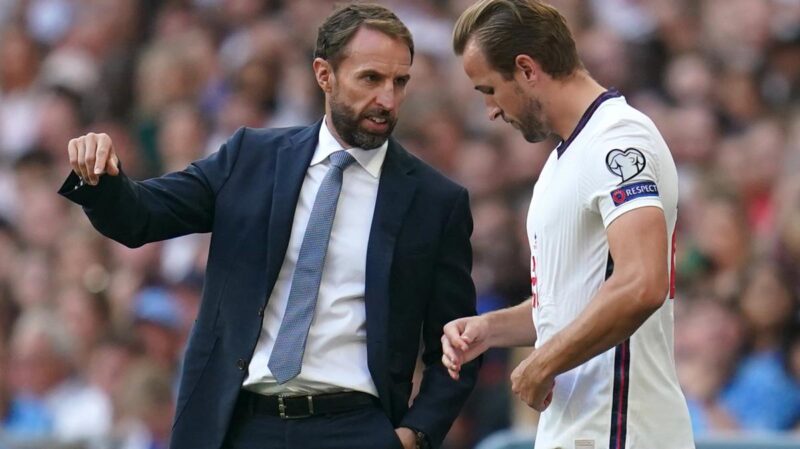
A win against Italy would bring the team’s resurgence to a close, demonstrating that England can produce successful international managers after all. A squad that, only five years ago, experienced perhaps its lowest point in history when it was eliminated from Euro 2016 by Icelandic underdogs. A group of players who, unlike so many before them, seem to enjoy representing their nation and are inspired rather than depleted by donning the Three Lions.
Even if England loses, it seems that great strides have been achieved. Future tournaments may be addressed with hope and confidence, rather than dread, since the national sports mentality has been healed.
However, understanding the significance and relevance of this squad requires looking at its effect off the field as well. After almost 18 months of the epidemic, England’s campaign has provided many people with the boost and diversion they needed, as well as some healing at a time when it was most required.
This generation of varied athletes also seems to have the social consciousness, humility, and confidence to express themselves, indicating a new age of athlete activism. Taking a knee before games to demonstrate their support for racial equality, for example, has sparked controversy and condemnation. But, with the help of their management, they’ve maintained their position, inspiring millions and serving as a uniting force at a time of profound social and political divide for many.
The final on Sunday will be one of the most memorable communal experiences our nation has ever had. One that may even outshine the London 2012 Olympics’ opening ceremony.
That event was also observed by a large number of people, and it seemed to unite families and communities together, as well as make the nation proud of itself. But a lot has occurred in the nine years since that night, and for many people, this game, and this squad, now seem even more important.
‘Spying operations’ that aided in the establishment of the foundations
Former FA technical director Howard Wilkinson restructured football’s academy system in 1997, laying the groundwork for this.
However, the journey to Euro 2024 started on January 31, 2011.
Southgate was appointed as the FA’s new director of elite development on the same day that construction on the national football facility, St George’s Park, started.
The 330-acre property in Burton-on-Trent had been purchased by the FA ten years before and was Wilkinson’s idea, but was only opened in 2012 after considerable delay.
It had everything to host all of England’s age-group teams, including a hotel, 12 fields, and top training facilities, but it also produced “a swarm of information exchange,” according to Mike Rigg, the FA’s director of talent management from 2013 to 2015.
Southgate and former FA director of development Sir Trevor Brooking devised their 10-year strategy to have England playing more attractive and successful football, which has now paid off.
“It’s a place where you can’t go down the hall without running across 20 different football players,” Rigg adds. “Performance analyzers or sports scientists could be there, and you’d spend the whole day talking about football, whether in the office, on the field, or in the cafeteria.”
According to Rigg, one of many “spying trips” to the Spanish FA taught him how to bring coaches for each club together on a regular basis.
‘The countdown to the World Cup in 2024 necessitated a shift.’
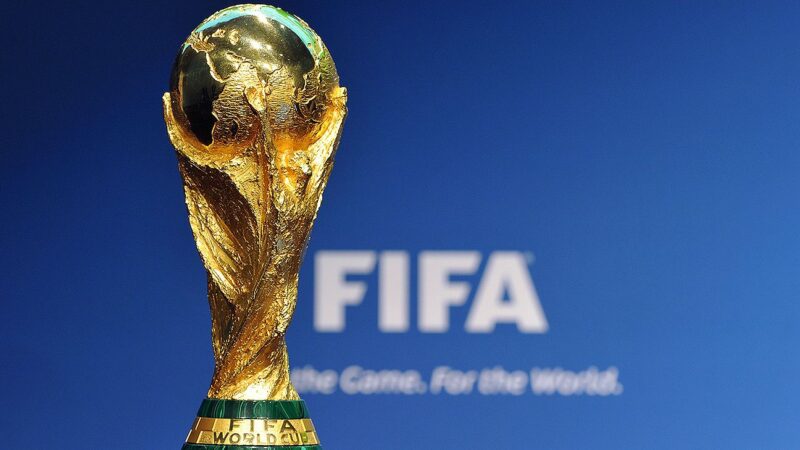
If St George’s Park created the impression that everyone was pulling in the same direction, Greg Dyke ratcheted up the pressure in 2013 when he set England the goal of reaching the Euro 2024 semi-finals and winning the 2024 World Cup.
A clock was soon placed in a newly constructed coaches’ room, counting down the days till Qatar 2024.
“I believe everyone thought I was crazy when I said it,” Dyke adds. “Today, though, it seems to be a lot more optimistic. The plan was to provide a boost for everyone.”
According to Rigg, who is now technical director at Burnley, it “definitely focussed minds.”
“It was nine years away at the moment, but we began to consider how many camps there would be. What are the ages of the players who will be available in 2024, and how much contact time will we have with them? “he declares
“Those nine years flew by in an instant, and the greatest thing the 2024 deadline did was force change.”
Thankfully, Dyke was able to come up with the funds to do so. It resulted in the FA expanding the number of young teams so that players in years between competitive age categories, beginning with under-15s, could be seen. It meant they could have a greater impact on athletes they only saw 55 days a year.
But there was still one crucial puzzle piece to complete: enlisting the help of Premier League teams.
The architect and bridge-builder Ashworth

At the 2018 World Cup in Russia, England manager Gareth Southgate and then-FA technical director Dan Ashworth.
The ‘golden generation’ of players who formed club cliques while on England duty and, despite their skill, would never reach the heights of the present team highlighted the lack of trust between the FA and the Premier League.
This included clubs and the Football Association. When it came to professionalism, the Premier League was at its pinnacle, but when it came to representing England, standards seemed to fall.
“Clubs’ trust in putting their players into England teams at all levels was not at its peak,” adds Rigg, who previously worked at Manchester City and Fulham.
“Players were returning from international football in a poorer condition, according to clubs. They were rubbing shoulders with other players, discussing contracts with agents in their ears, and discussing various game and training experiences.”
Dan Ashworth, the former West Brom technical director, took over as the club’s new head of elite development in 2013 when Southgate stepped down. He immediately improved the relationship between clubs and the FA, and it has never been the same since.
Rigg says, “Dan said it had to alter.” “It had to be an experience that aided rather than hindered the athletes’ growth. We went after it from every aspect.”
Being located in St George’s Park aided this in part. But Ashworth also brought in a more elite staff structure, including Dave Reddin, the director of performance, who had previously worked with England Rugby and the British Olympic Association, and Matt Crocker, the head of player and coach development, who had previously worked with Southampton.
They all contributed to the establishment of a ‘England DNA’ in 2014, which established a uniform playing style across all age levels based on six important concepts. It also taught players about the principles that were required of them, as well as providing them with further education and assistance.
In essence, England’s players were immersed in an elite performance culture, which mirrored that of their teams.
An ‘explosion’ in English football in 2017
The 2017 England Under 20s World Cup-winning squad
Because of his club experience, Ashworth knew two important things when he joined the FA.
To begin with, the technical development of England players will be heavily influenced by what occurs at clubs. Second, that the players were mostly in excellent hands, and that a new revolution was on the way.
Playing time in top teams was an issue for English youth. Back at the training grounds, though, things were changing. Clubs agreed to create a £320 million Elite Player Performance Plan to improve their junior team coaching programs. The number of training hours was increased, and academies were given grades depending on their performance. In addition, the FA revamped its coaching curriculum to concentrate on younger age groups.
At first, there was little difference between Premier League first teams, but when England’s junior teams started winning competitions, it was clear that potential existed.
Ashworth, who had been promoted to technical director, and his colleagues believed that success at the junior level would lead to trophies for the senior squad. Both Spain and Germany have won European Championships at the under-19 and under-21 levels before going on to win World Cups in 2010 and 2014.

When England won the under-17 European Championship in 2010, it was the first age-group championship in 27 years, there were already indications of promise. In 2014, there was another another.
Then, in 2017, English football took off like a rocket. The under-17s and under-20s both won their World Cups, while the under-18s won the Toulon tournament and the under-19s took home the European Championship. Current England players Phil Foden, Jadon Sancho, and Dominic Calvert-Lewin were all part of those teams.
“Four of the five age groups received awards,” Brooking added. “When you look back at those five years, you think, ‘We’ve got some terrific guys coming through,’ and you know the next few years are going to be fantastic.’”
Sancho was signed by Borussia Dortmund at the same time, and other youngsters followed him to Germany, something Brooking described as “unheard of.” It was another another acknowledgement of a unique bunch.
“In terms of the job of a technical director, I don’t believe Dan could have had a greater effect with the plans he put in place at the FA,” Southgate stated when Ashworth departed the FA at the start of 2019.
But, after translating that young team success into an unexpected World Cup semi-final, can Southgate lead the squad to the next level?
Southgate is the last puzzle component
‘I danced in Gareth’s shoes,’ says England coach Chris Powell of their childhood friendship.
Many individuals have contributed to England reaching their first major final in 55 years, but many believe Southgate is the pivotal figure.
Perhaps Southgate would not have gotten the job if it hadn’t been for a journalistic sting involving former manager Sam Allardyce, who only lasted one game in charge.
But, having contributed to the FA’s vision by visiting clubs and coaches throughout the nation to lay out what a new England would look like, and having worked with many of the current squad members when he returned to the FA as under-21s manager in 2013, he is in an ideal position.
“Gareth was at the FA and at St George’s Park, so when he became England manager [in 2016], he was entrenched in that system, and I don’t think it would have worked without him,” Dyke adds.
By focusing on the club’s culture and identity, Southgate has propelled the team to new heights. Players are now presented with their caps rather than receiving them by mail, and they are given a legacy number that indicates their place in the lengthy line of Three Lions players.
Southgate has spent the last two years emphasizing how the squad reflects contemporary Britain and has created a connection between the team and the nation.
The 50-year-old said in the Players’ Tribune before Euro 2024: “It’s about how we behave ourselves on and off the field, how we bring people together, how we inspire and unify, and how we leave lasting memories. This is something that will endure far beyond the summer. That will continue indefinitely.”
“When we had Monday morning meetings at St George’s Park eight or nine years ago, it was Gareth who came there at seven o’clock,” Rigg recalls. “He’s been the driving force behind it all.”
“Gareth has a great understanding of individual players and their personalities in order to get the most out of the team,” Brooking continues.
“I’m hoping for Sunday, but I’m certain we’ll be there or near for the next ten years.”
England and Italy will face off in the Euro 2024 final, with England’s Inspirational performance against Sweden inspiring a nation. Reference: england vs italy euro 2024.
